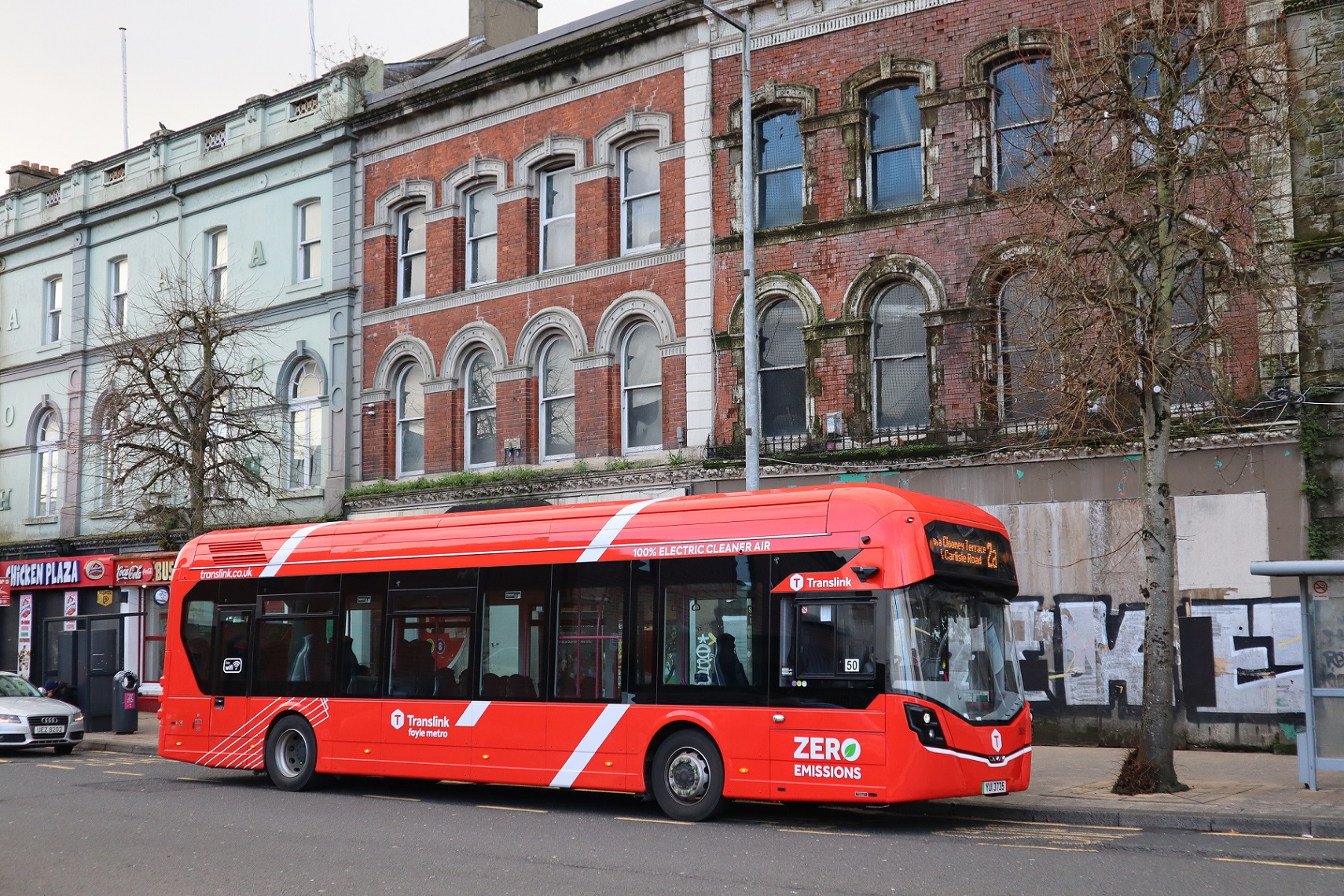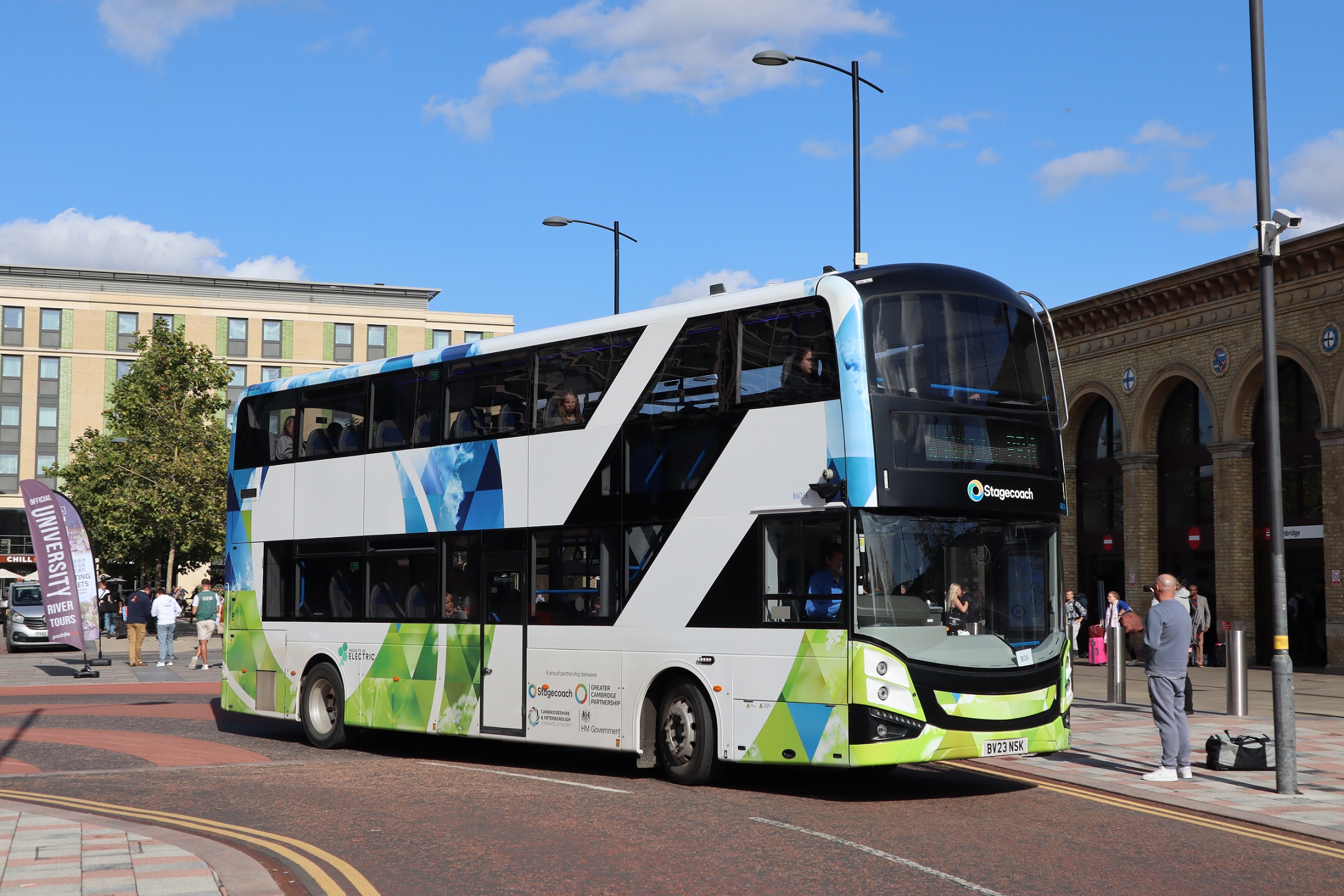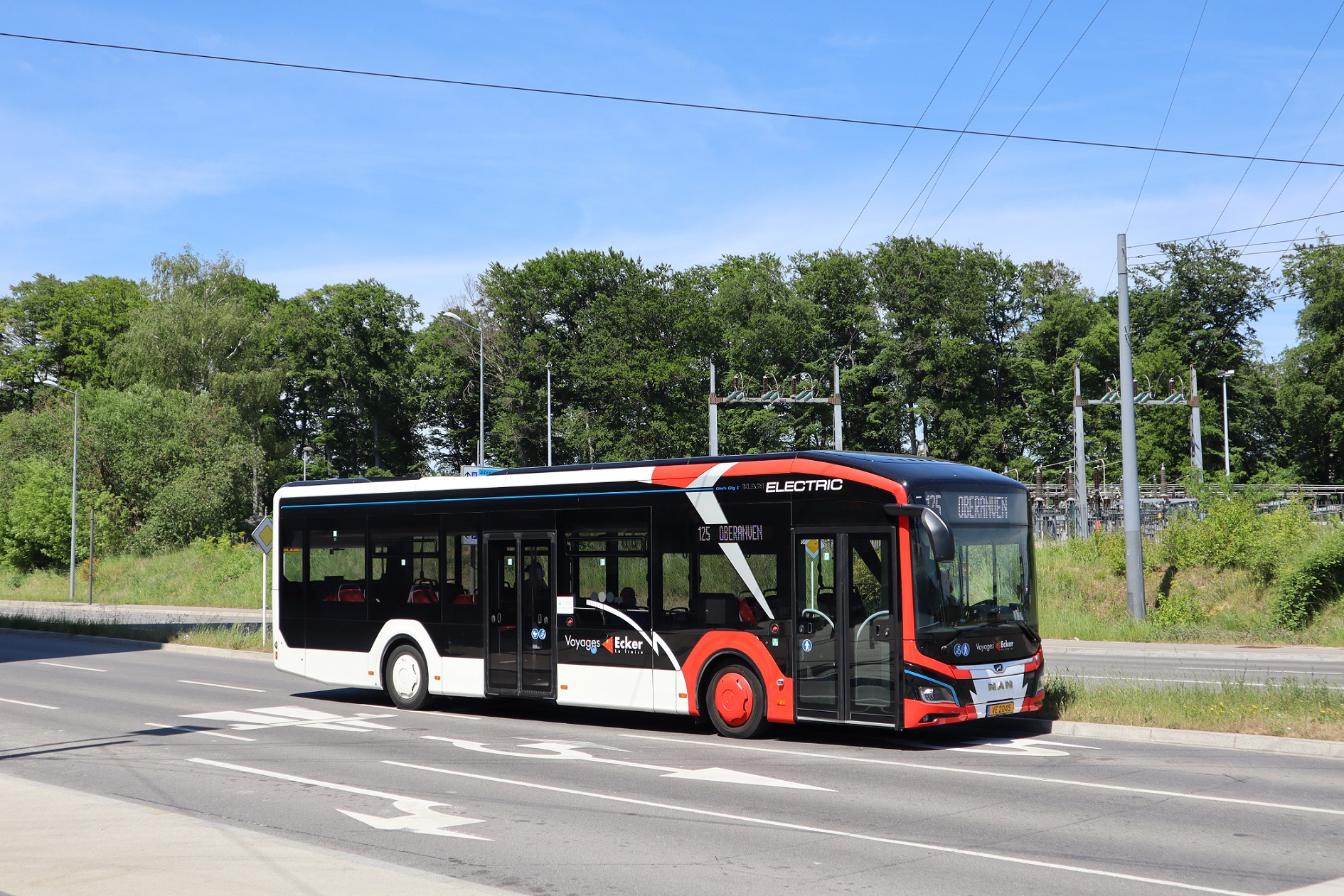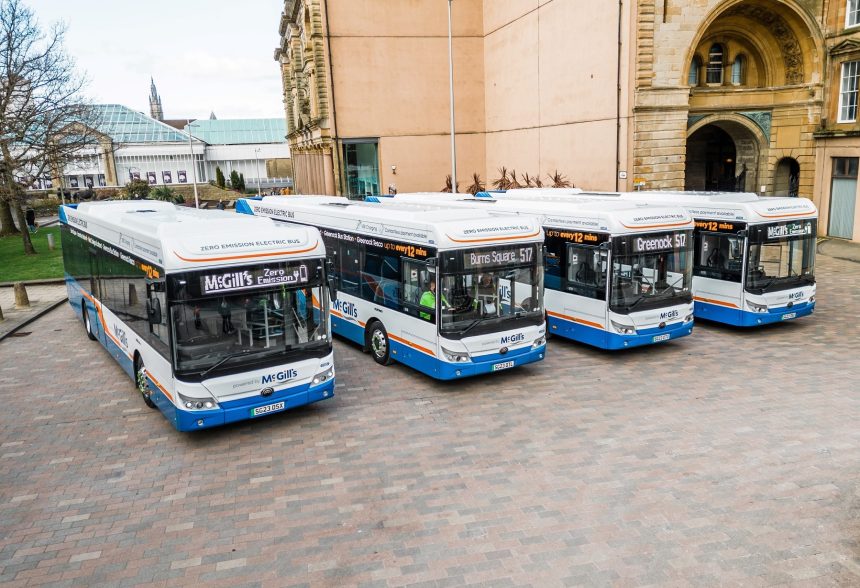The UK again led the deployment of new battery-electric coach and bus fleets across 31 European nations during 2023, according to data for those with a GVW of over 8,000kg that has been collated by Dutch consultancy Chatrou CME Solutions.
1,206 registrations of those vehicles here last year represented 19% of the combined total in the EU27, Iceland, Switzerland, Norway, and the UK. That represents growth of 521 units, or 76.1%, on the 2022 figure in the UK of 685.
Such a return in 2023 was well ahead of Germany in second place with 753 registrations, and more than double each of those completing the top five: Norway (493), Spain (491), and France (416).
Further indication of the UK’s strength in battery-electric rollout is via figures for 2012-2023. 3,041 registrations in that period represented 16% of the combined 31-nation market of 19,009. That multi-year total was almost 500 ahead of Germany in second place. It saw 2,562 battery-electric registrations over those 12 years.

Chatrou’s figures show an acceleration in the rate of growth of battery-electric coaches and buses across the 31 countries. In all of those, there were 6,354 such registrations in 2023, up by 53.1% from the 4,152 in 2022. All but 200 of those in 2023 were in the city bus segment. By contrast, the growth from 2021 to 2022 was 26.5%.
Across the nations surveyed, 207 hydrogen fuel cell-electrics – all in the city bus segment – were registered last year. That is more than double the 99 seen in 2022, but is better compared against 2021, which saw a return of 158.
Wider data from Chatrou captures registrations of all coaches and buses with alternative drivelines. That includes battery- and hydrogen fuel cell-electric, diesel-electric hybrid, and compressed natural gas (CNG), but excludes trolleybuses.
Of the 31 nations’ 15,098 total registrations in what the consultancy describes as the city bus segment (including conventional diesels but excluding 44 trolleybuses), 11,004 had alternative drivelines; of those, 6,361, or 42.1%, were zero-emission.
Zemo Partnership recently said that around 60% of UK bus registrations in 2023 were zero-emission, with 2022 and 2021 having each seen 50% market share.

Diesel-electric hybrid technology in coach and bus saw an almost doubling in registrations in 2023 for the nations analysed, while CNG declined slightly, although the former is down to a major uplift in deployment of hybrids in classes outside city bus. CNG also held firm in that area. Nevertheless, 2,947 hybrid city buses were registered in the 31 nations.
On the manufacturer side, a big surprise saw MAN take first place in battery-electric registrations in 2023, with 785. That gave it a 31-nation market share of 12.4% and was more than treble its 2022 total of 230.
Across the zero-emission parc, the leader in 2023 was Solaris, with 802 registrations; 725 of those were battery-electrics and 77 were hydrogen fuel cell-electrics. MAN is not yet active in the hydrogen segment, although it has said that its battery-electric bus range could yet come to the UK.

Among other manufacturers in battery-electric during 2023, Yutong was in third place with 483 registrations – up slightly from 479 in 2022 – while in fourth was Wrightbus, with 469. That was a more than four-fold increase from 112 in 2022. The BYD Alexander Dennis partnership completed the top five with 448, down modestly from the 465 of 2022.
Of selected other vehicle OEMs last year, the Mercedes-Benz brand saw 446 battery-electric registrations, Volvo 345, Irizar 211, Caetano 90, and Mellor 66.
The 207 hydrogen fuel cell-electric registrations are not broken down into countries, but 2023’s leading manufacturer in that parc was Solaris with its 77. Caetano and Van Hool shared second place, each with 34, while in fourth was Alexander Dennis with 20. Wrightbus registered 15 such buses last year.
2023 was the final time for which Chatrou CME Solutions will analyse the European market for coach and bus alternative drivelines owing to the retirement of founder Wim Chatrou. However, he advises that discussions are ongoing with other parties for a potential continuation of the service.



























